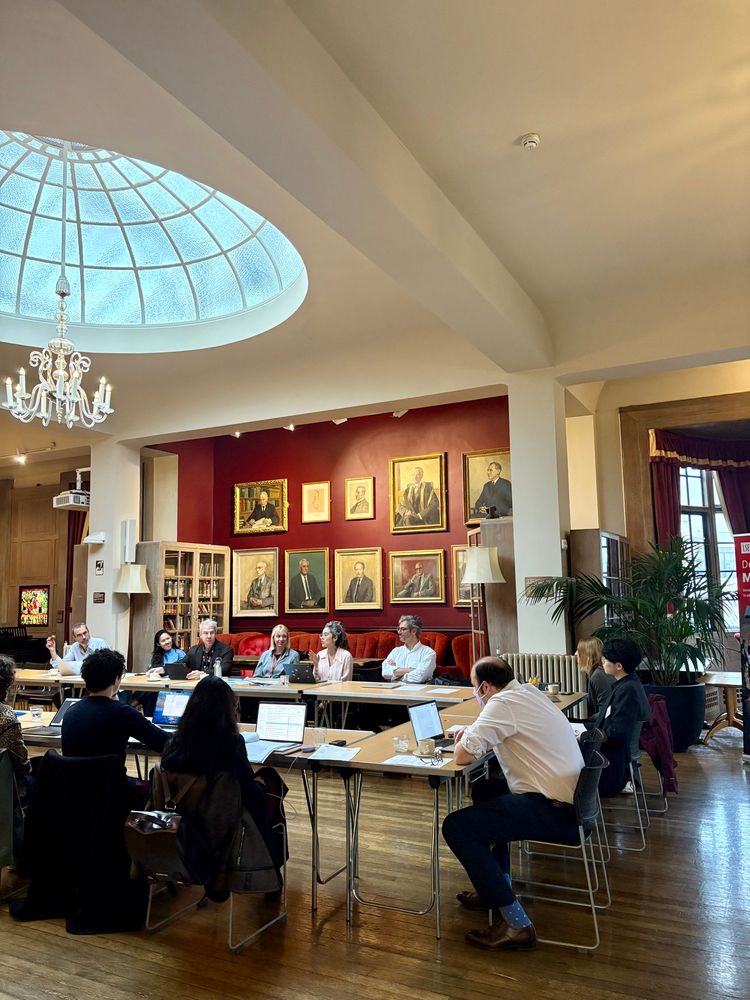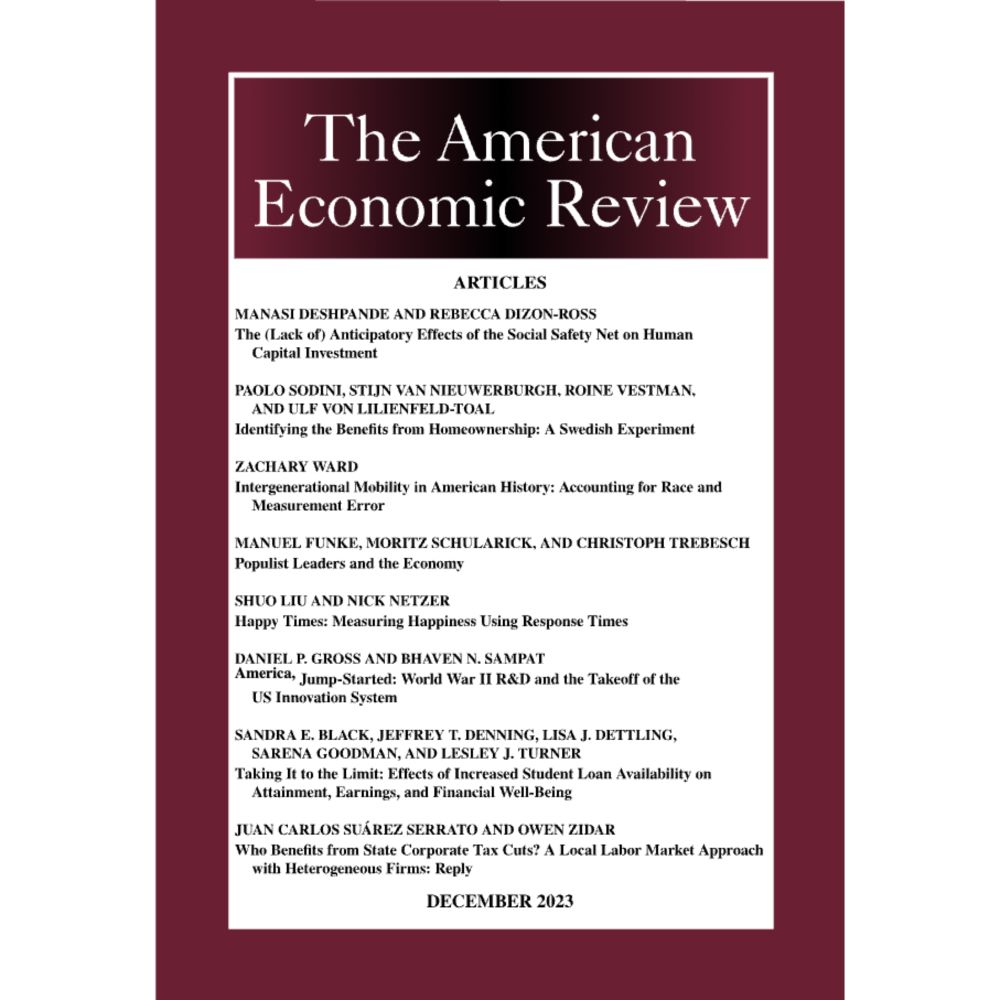computational social scientist
David Lazer is a distinguished professor of political science and computer and information science at Northeastern University, as well as the co-director of the NULab of Texts, Maps, and Networks. .. more
Reposted by David Lazer, Will Jennings, Timothy D. McBride
Reposted by David Lazer



Social Science Meets
Qualitative Research workshop has begun and we’re in the iconic Shaw Library 📚⚡️
@lsedatascience.bsky.social
Reposted by Shannon Vallor, David Lazer
Reposted by David Lazer, Juan Cole, McKenzie Wark , and 1 more David Lazer, Juan Cole, McKenzie Wark, Bessma Momani

Reposted by David Lazer, Bessma Momani

www.chip50.org/blog/big-shi...

Reposted by David Lazer


We're hiring 2+ open-rank profs (Asst/Assoc/Full). Any area.
Deadline: this Saturday, Nov 15!
Join a leading European sociology department. Please repost!
jobportal.ku.dk/videnskabeli...
Reposted by Meredith Broussard, David Lazer

Reposted by David Lazer, Larry W. Hunter
Only open for 2 weeks (applications due November 21).
Application materials include a) CV b) vision statement c) a photocopy of doctoral degree.
hr.nih.gov/careers/open...
Reposted by David Lazer
Reposted by Elizabeth Saunders, David Lazer, David R. Miller

Reposted by David Lazer

🧪 #academicSky
@nature.com @ox.ac.uk
www.nature.com/articles/d41...
Reposted by Meredith Broussard, David Lazer, Brian Keegan

Reposted by David Lazer
Big Tech companies use secrecy agreements with local governments to keep communities from knowing who is building in their backyards.
www.nbcnews.com/tech/tech-ne...

Reposted by David Lazer, David Darmofal, Tyler Simko


Three densest counties saw largest jumps from '21:
Hudson (Jersey City), Essex (Newark), Union
>30% increase in total vote
>30-pt Democratic margin
High-profile local races helped, e.g., Jersey City mayoral w/ former gov
1/2

onlinelibrary.wiley.com/doi/abs/10.1...
Reposted by David Lazer, Johannes Breuer, Sebastian Stier

Reposted by David Lazer
doi.org/10.57814/557...
Reposted by David Lazer, David Darmofal
'24 non-voters (33%)
Independents (30%)
People of color (26%)
Economic outlook remains negative, with few expecting prices to decrease any time soon, and many saying Trump's policies making them worse off
More from latest poll: www.cbsnews.com/news/cbs-new...
2/2
Reposted by Anna O. Law, David Lazer, Jacob Montgomery
Reposted by Nicholas A. Christakis, David Lazer, Fabián Muniesa

Reposted by David Lazer, David Darmofal
Reposted by David Lazer

Reposted by David Lazer

Reposted by David Lazer


What have we learned about social media - the constantly moving target of empirical research - over the past decade?
Reposted by David Lazer, Brady T. West, Josh Pasek
AAPOR's Taskforce on 2024 Pre-Election Polling report is out!
Full report: /https://aapor.org/wp-content/uploads/2025/10/AAPOR-Task-Force-on-2024-Pre-Election-Polling_Report.pdf
Executive summary: aapor.org/wp-content/u...





